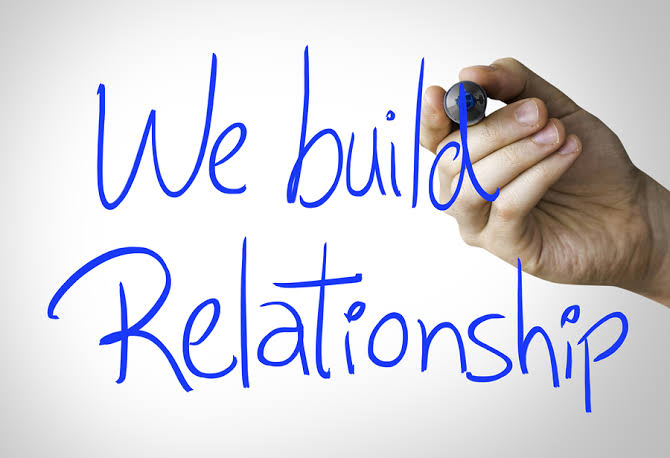In today’s digital world, making real connections online is more important than ever for personal, work, and romantic success. Whether you’re networking for your job, keeping in touch with friends far away, leading a remote team, or running an online group, building true relationships online takes care and understanding. By July 2025, the tools are better than ever, but the true power of online relationships comes from people, not just technology.
While face-to-face interactions carry natural social cues like body language and tone, online communication can feel distant or transactional. That’s why strong digital relationships rely heavily on clarity, consistency, empathy, and trust. Below are practical strategies to help you foster lasting and authentic connections in any virtual space.
Be Present and Responsive
The foundation of any strong relationship—online or offline—is presence. When engaging in conversations, avoid multitasking or being distracted by other tabs and devices. Presence means giving the other person your full attention, even through a screen.
Timely responses also matter. While you don’t have to be constantly available, responding within a reasonable window shows respect and interest. Delays without acknowledgment can unintentionally signal disinterest or dismissiveness.
If you’re unable to respond immediately, a simple message like “I’ll get back to this soon” maintains the flow and shows that the relationship matters.
Personalize Your Communication
Generic messages often fall flat in digital communication. To build a strong online relationship, tailor your conversations to the individual. Mention past conversations, reference shared interests, or use the person’s name in chats and emails. These small efforts go a long way in establishing rapport.
Especially in professional contexts, avoid overly robotic language. Whether you’re communicating through LinkedIn, Slack, or email, adding warmth and personality—without being unprofessional—makes your interactions memorable.
Use Video Calls Strategically
While messaging is convenient, video calls are crucial for building deeper trust. Seeing facial expressions and hearing someone’s voice creates a more personal connection and helps reduce misunderstandings.
Schedule occasional video meetings with remote colleagues, clients, or friends to strengthen the emotional bond. However, be respectful of “Zoom fatigue”—always ask if a video chat is preferred and keep it meaningful rather than excessive.
Be Transparent and Authentic
In online spaces, where curated personas and filtered content are common, authenticity stands out. Be honest about who you are, your values, and your intentions. Whether you’re networking, dating, or collaborating, people are more likely to trust and invest in relationships that feel real.
Avoid trying to impress or oversell yourself. Share both successes and challenges. Vulnerability—when appropriate—can deepen connections by showing that you’re human and approachable.
Practice Empathy and Active Listening
Digital platforms strip away many emotional cues, which makes empathy even more important. Mindful, empathetic communication shows others that you value their feelings and perspectives.
Practice active listening in online conversations by:
- Reflecting back what the other person said
- Asking thoughtful follow-up questions
- Avoiding the temptation to immediately shift the focus to yourself
In written exchanges, emojis, punctuation, and tone indicators (e.g., “That sounds hard — I’m here for you.”) can help convey empathy clearly.
Be Consistent, Not Just Occasional
Relationships fade when they’re only maintained sporadically. Make consistency part of your routine. Check in regularly—even if briefly—with people you value. Set reminders if necessary. A simple message like “Thinking of you, how’s everything going?” can keep the connection alive.
In professional contexts, periodic follow-ups or offering helpful resources can also help maintain engagement and relevance without being overbearing.
Offer Value and Support
Strong relationships are reciprocal. Think about what you can offer, not just what you can gain. Share insights, make introductions, promote someone’s work, or simply offer encouragement.
In group chats, forums, or collaborative platforms, contributing meaningfully—without expecting immediate returns—helps build a reputation as a generous and trusted community member. Over time, people will naturally gravitate toward you as someone who adds value.
Respect Digital Boundaries
Not everyone communicates the same way online. Some people may prefer texts over voice notes, or emails over DMs. Always be respectful of personal boundaries and communication preferences.
Also, understand that digital fatigue is real. If someone takes a while to respond or needs space, don’t take it personally. Healthy relationships, online or not, require mutual respect and patience.
Leverage Communities and Shared Interests
Online communities—whether through Reddit, Discord, Slack, or private groups—can be powerful places to meet like-minded people. Engaging in spaces where you share common goals or passions makes forming meaningful connections more natural.
Participate actively, not just passively. Join conversations, ask questions, and offer encouragement. Over time, consistent presence in a niche community can lead to deeper one-on-one relationships.
Use Clear and Kind Language
Without tone or facial expressions, text-based communication can easily be misinterpreted. Choose words carefully and aim for clarity and kindness, especially when addressing conflict or giving feedback.
Avoid sarcasm unless you know the person well, and use humor mindfully. When in doubt, add context or clarification to ensure your intent is understood.
Final Thoughts
Building strong relationships online takes effort, but it is more than possible—and incredibly rewarding. With the right mix of empathy, intention, and consistency, you can create meaningful connections that rival or even exceed in-person interactions.
Whether you’re cultivating friendships, professional networks, or collaborative teams, remember: it’s not just about being connected—it’s about being truly engaged. In a world filled with noise, being present, authentic, and supportive will always stand out.



